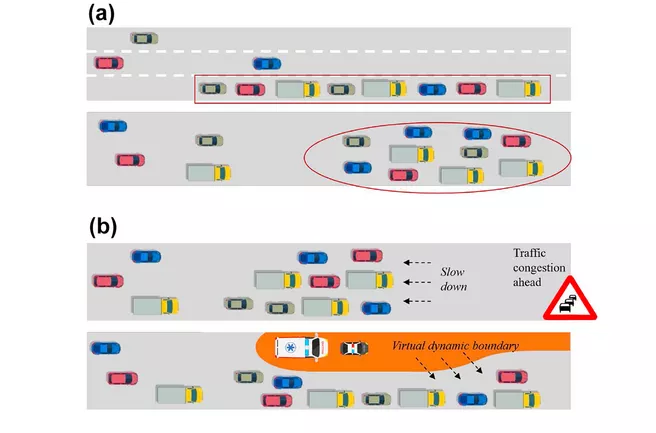The paper written by Majid Rostami-Shahrbabaki, Simone Weikl, Tanja Niels, and Klaus Bogenberger deals with automated lane-free traffic. A realm in which vehicles have the freedom to select their positions dynamically, enabling a unique phenomenon known as flocking. Unlike traditional platooning, this approach allows vehicles to closely group together, not only in terms of following each other but also by occupying adjacent lateral spaces.
The significance in these vehicle flocks lies in their ability to enhance road capacity, save energy through reduced aerodynamic drag, and mitigate traffic disruptions. This paper introduces a sophisticated control framework designed to model and regulate vehicle flocks within the context of automated lane-free traffic.
At the core of this paper lies an algorithm, that leads to results which demonstrate rapid formation, synchronized speeds, and stability in vehicle flocks, adapting spatially to energy function and road boundary changes. Most importantly, the algorithm maintains stability and efficiently dampens shocks in the face of disturbances through subtle lateral adjustments which makes this paper outstanding.
The D. Grant Mickle Award, established in 1976, recognizes an outstanding annual paper in the operation, safety, and maintenance of transportation facilities. The award is granted to authors who received the Highway Research Board Award (1971–1973) and the Transportation Research Board Award (1975–1976) for papers in this field.
Links:
Paper 'Modeling Vehicle Flocking in Lane-Free Automated Traffic'
Chair of Traffic Engineering and Control
